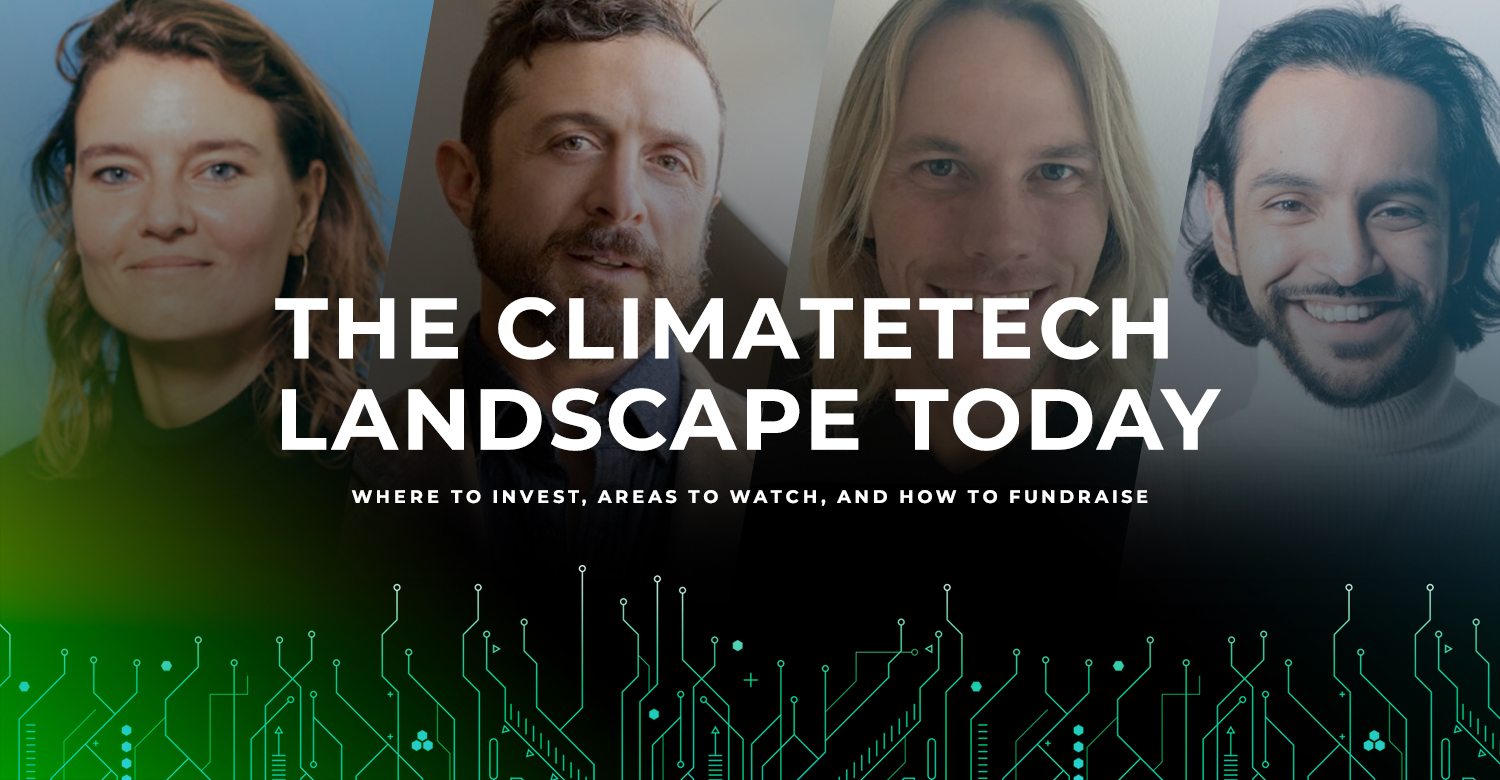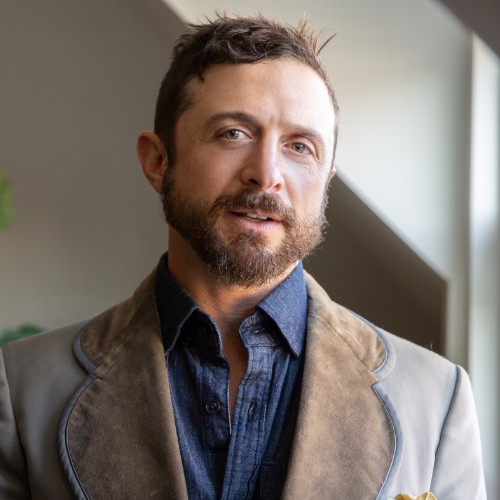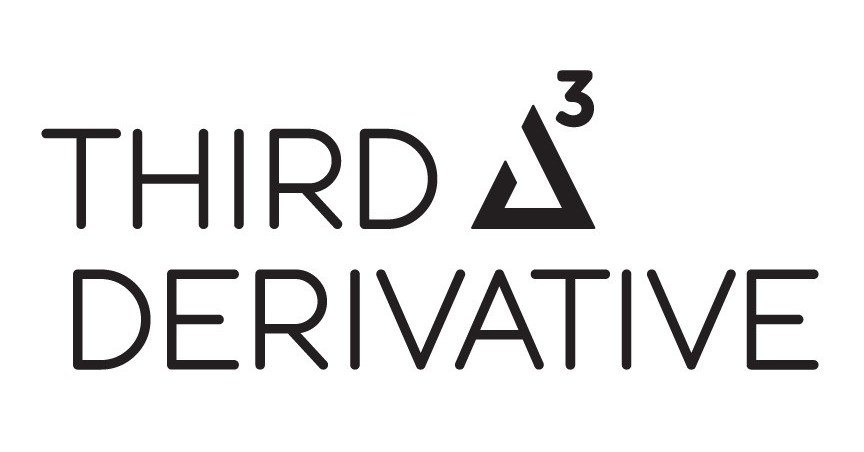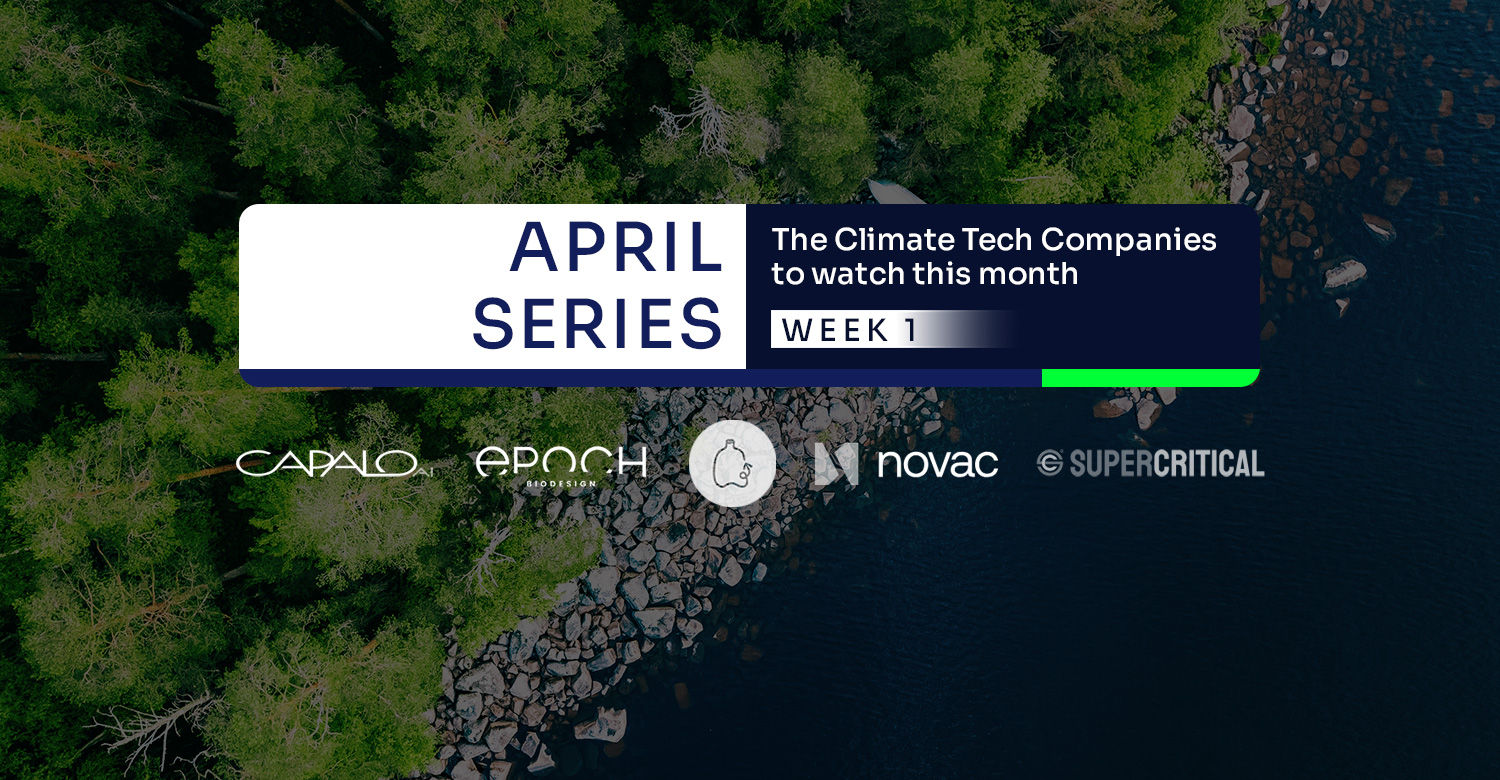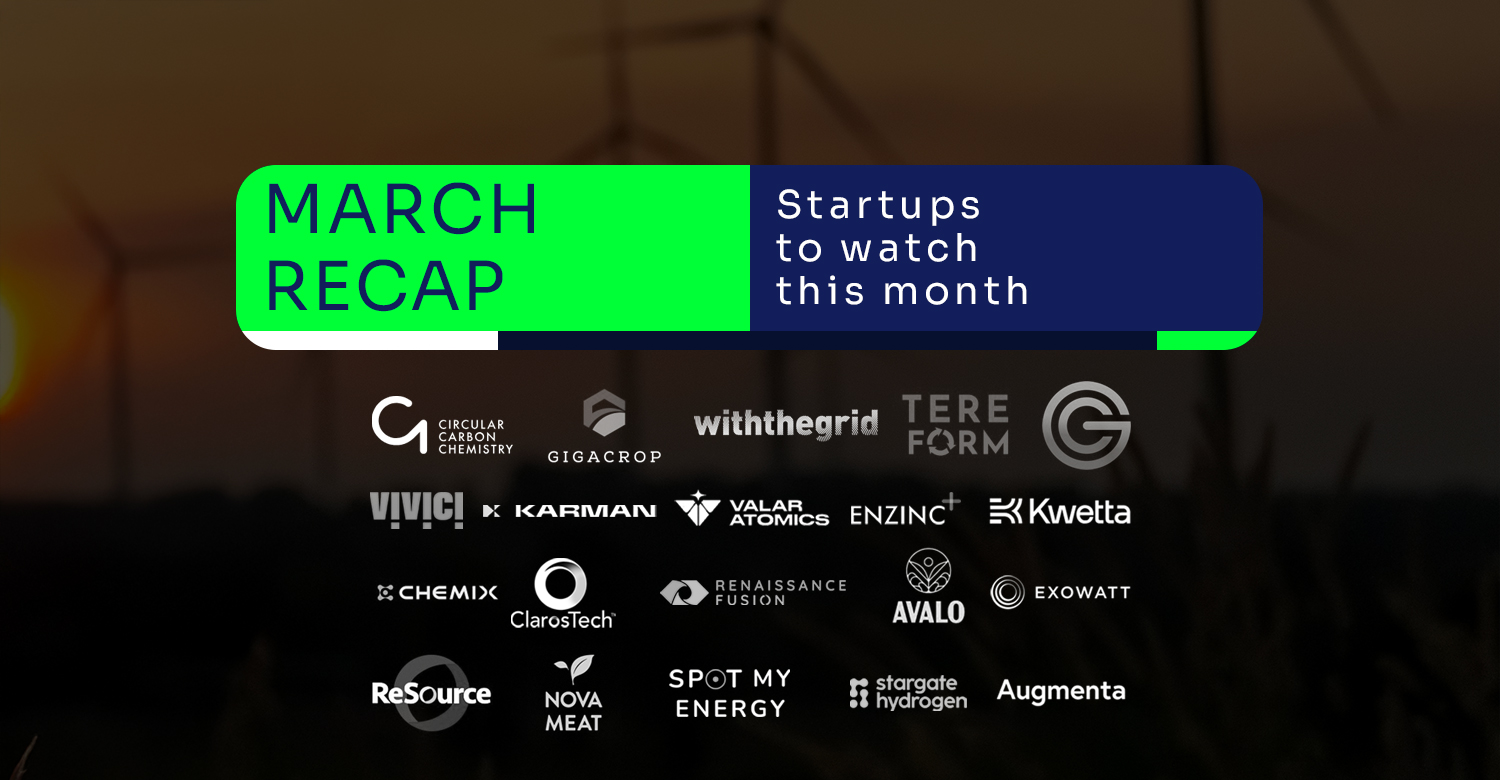We asked 4 Climate Tech Professionals for their Investment Insights & Fundraising Tips - Here is What They Said:
Over the last month, the Tech4Climate Podcast has interviewed a range of impactful Climate Tech Investors and Founders addressing some of the world’s hardest problems.
This week, we wanted to share a bit of their insight, and reveal some of the key highlights that we took away from these interviews. They shared everything from startup stories and anecdotes, to valuable tools for investors and entrepreneurs moving into the industry.
If you are looking to find out what some of the ClimateTech landscapes professionals are working on today, take a look below, or listen to the full interviews on the Tech4Climate Podcast here.
*Please note these interviews have been adapted and edited for the sake of this article
Can you give us an overview of the climate investment landscape today?
“Within the private markets you see now quite an explosion of interest for climate investing. It’s really hot. You see that, for one, you get new climate funds that are really focused, dedicated towards climate investing, but you also see general funds, like Sequoia for example, that are starting to get into climate deals. So both from the general, and from the niche/new climate-specific funds, you see lots of new funds starting.
As a result of that, the private market landscape is super dynamic. I would say you see most momentum in the VC, very early seed stage funding. You see much less climate focus in private equity, it is starting to emerge, but it’s still much more nascent. You’ve got a couple of funds like Summa equity, which are really known, and now you start to see that the big funds which are really known like Temasek, for example, are also starting to launch their first climate funds, but that’s only starting, whereas the VC landscapes are already starting to mature a little bit.
“The private market landscape is super dynamic. I would say you see most momentum in the VC, very early seed stage funding. You see much less climate focus in private equity, it is starting to emerge, but it’s still much more nascent.”
What you see is that it’s still extremely dynamic in a sense that it’s still very unclear. There’s so many new technologies, so many new different funds and what Carbon Equity tries to do is create some overview in the chaos. We help guide investors through who’s doing what, what the focus of different funds is, What the top funds are, and we curate these funds based on financial diligence and climate diligence. We then come with a selection of funds that we believe are really moving the needle and are also financially very interesting from an investment point of view.
Discover & hear more climate tech insights from Jacqueline's full interview:
Where is the ClimateTech Ecosystem standing today?
“I’ve been in the climate tech/cleantech industry for a little over 10 years now and I’m happy to report that we’ve gone from being the 9th or 10th, most interesting industry in terms of where people are investing and reading about to probably the number one. Everyone’s really focused on climate; goals, disasters, everything – and that’s good.
It’d be better if we started earlier, but starting from the place you’re at is what happens. And so there’s a lot happening. Categorically, energy storage, transportation, buildings, circular economy, carbon offsets everything’s happening right now. So this is really a golden era for climate tech.”
Which sectors are the most promising for you in terms of Impact/Cash Return?
“Storage is really hot, anything that makes deployment of wind and solar cheaper is also great, the carbon offset market is evolving and growing.
The hydrogen economy, I think, is so fascinating. There’s a lot of money going into it, but we’ve funded a few electrolyzer companies, just anything that makes clean, hydrogen cheaper. My sense is that’s going to exist and it’s going to be a pretty significant part of the total energy economy and doesn’t really exist right now. Anything in clean transportation is really exciting. We also have a whole sector that looks at industrial processes, manufacturing chemicals, and doing things in a less ecologically damaging way. “
Discover & hear more climate tech insights from Ryan's full interview:
Could you give 3 tips to young or first time founders seeking to fundraise?
“So the first is if you’re considering starting a company and in climate or ecological work, I say do it and it’s a great time honestly, there’s an overwhelming amount of funding available for good ideas with experienced or really smart teams who are building products that are actually useful.
The second is to identify where the real problems are. There’s a lot of companies that I see out there that are building technology for things that aren’t actually problems. And, and it’s not that they’re not cool technologies.
These things seem like a problem, or it seems like it could be a product, but it’s not something that will fundamentally drive a change in the financial structures in ecosystems or actual on the ground work. So identify what the real big problems are, and the bigger the problem, the easier it’s going to be.
“Identify what the real big problems are, and the bigger the problem, the easier it’s going to be.”
We’re (Earthshot Labs) targeting a really big problem, which is,the grand unified ecosystem model and then incentivizing land restoration all around the world. It’s a big idea. And it’s a big problem. The amount of interest we’re attracting is just so much larger and we’re doing the same amount of work. It’s the same amount of work to start that company as it is to start something else that’s working on a simpler problem. So the bigger the problem, the better. “
Discover & hear more climate tech insights from Troy's full interview:
What tips would you give to founders to increase the odds of fundraising success?
#1. “This was something I had to slowly realize, but when you, as a founder are talking to investors, you control the conversation, not the investors that you’re talking to. And so you’re the one that controls the pitch. You’re the one that controls where it goes and you’re the one that controls the information being shared. I’m not saying be devious with that. Don’t lie about anything. Rather, what I’m saying is that as you’re going into any fundraising process you should know the top 3-5 things that you want the investors to remember. That’s I think one piece of advice that was really helpful for me.
#2. The second is that if you’re thinking about fundraising and you’re starting to make a list of investors, and you’re starting to think about your materials, your pitch and all these things, I would recommend that you avoid speaking to any investors until you’re ready to speak to all of them and then speak to all of them as fast as you can.
“One of the things that is most helpful when raising a round is keeping the sense of momentum and urgency going across your work. “
One of the things that is most helpful when raising a round is keeping the sense of momentum and urgency going across your work. “]The best way to do that is to push all of the investors that you want to talk to as close together as possible. So that as you start winning and start to raise a small amount of money, you can use that to drive urgency with the rest of them so that they see that your round is closing and they’re not going to be able to just take forever to make a decision.
#3. The third one is kind of related to the second one. I found that creating artificial deadlines or stories about how popular the round is just never works. Investors can see right through that. The best way to create urgency and get people to move and make decisions is again, to use the momentum that you’re building from smashing all of your conversations into a short period of time.
